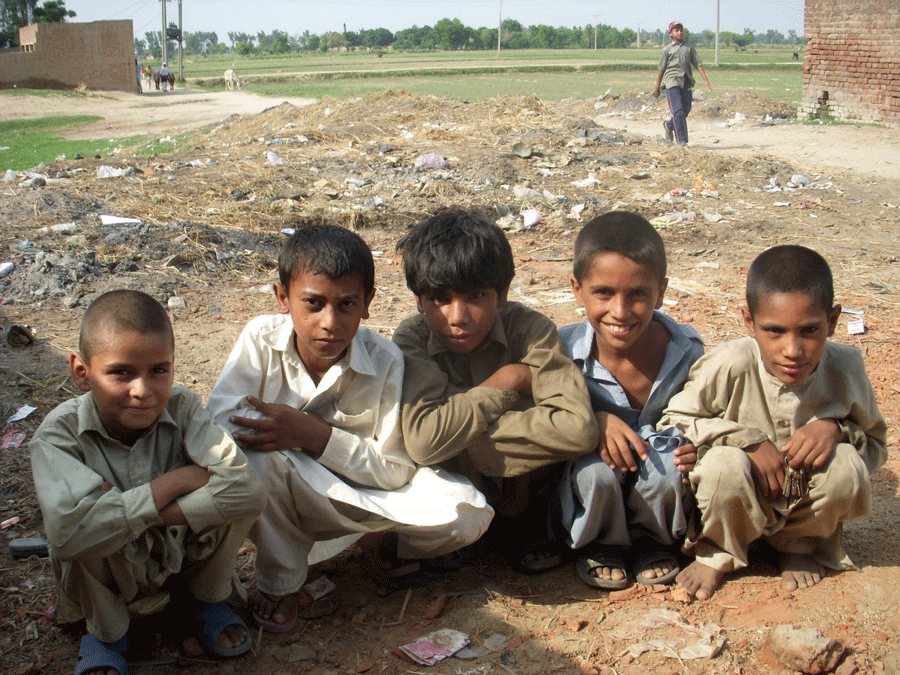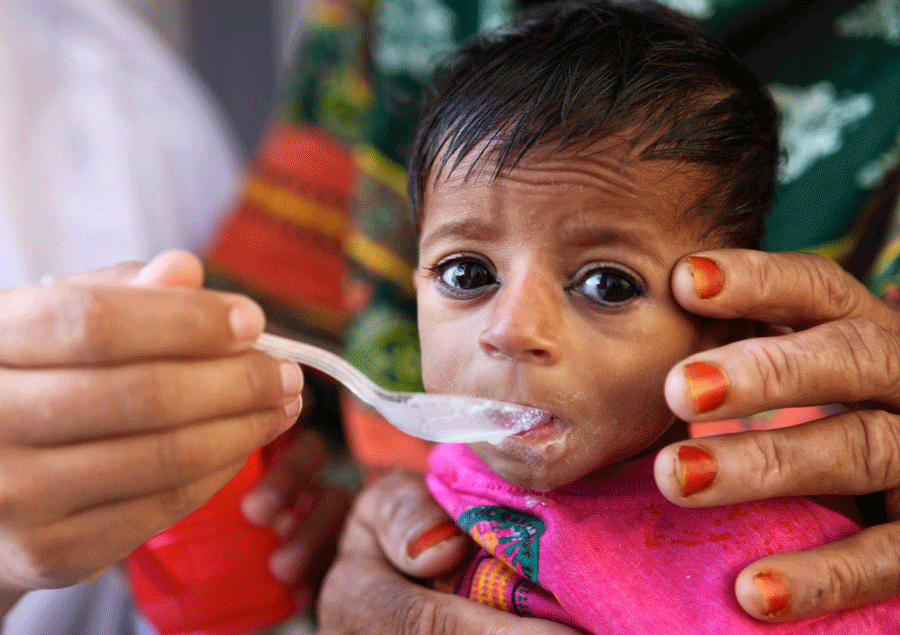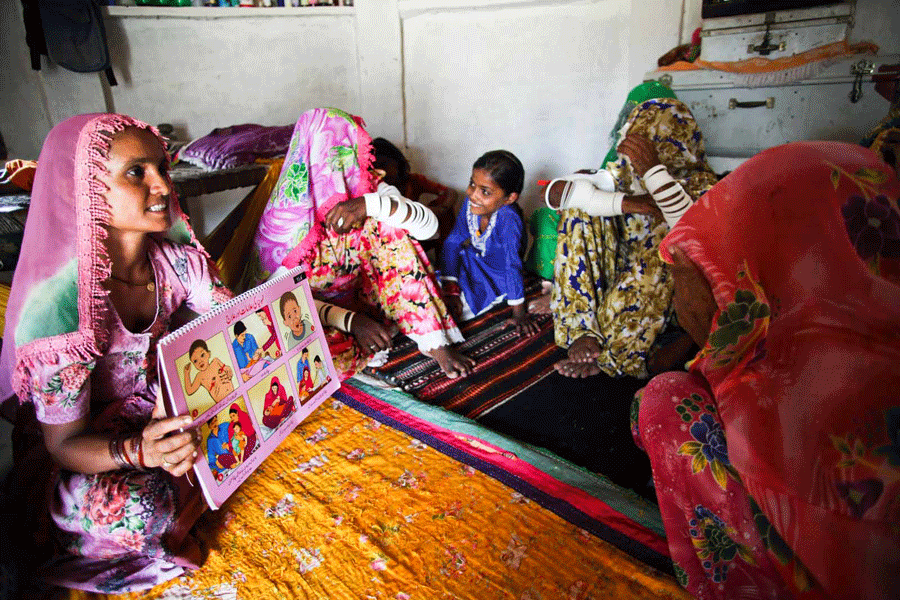Focus on Human Development
By Dr Farzana Bari | Cover Story | Published 6 years ago

Pakistan, today, is faced with multiple challenges on the socio-cultural, economic, political and foreign policy fronts. Major existential threats to the country emanate from internal unrest due to increasing poverty, a high rate of unemployment, lack of access to social services and violent extremism against women, children, transgenders and religious minorities.
While Pakistan has made some progress with regard to several human development indicators, the pace of such progress has been extremely slow.
Pakistan ranks 147 out of 188 countries on the Human Development Index (2017) and second-last – 143rd – of 144 countries, on the Global Gender Gap Index (2017).
Historic neglect in investing on human development has brought the country to the brink of social disaster. There has been a lot of talk about social sector reforms in the past, by successive military and civil governments, especially after the 18th Constitutional Amendment when the responsibility for the social sector was devolved to the provinces. However, a uni-dimensional technical approach to reforms, targeting institutions and ignoring the socio-cultural patriarchal beliefs that shape institutional practices, policy and programmes, has not resulted in a better outcome in the social sector.
Imran Khan’s Pakistan Tehreek-e-Insaf (PTI) rides on the slogans of change, weeding out corruption and social sector reforms, to build human capital. As a result, the public’s expectations are high. The ground reality is, however, daunting. The government faces massive economic challenges: a depletion of foreign currency reserves – currently sufficient only to cover the import bills for less than two months; a low tax ratio vis-a-vis GDP; a current account deficit; weakening currency; circular and external debt repayment, and so on.
Within this bleak economic scenario, how can Khan’s government best deliver on its promises?
Khan’s focus on human development requires a complete revamping of the system. However, given the bleak economic situation, the trajectory on which the government can fulfil some of the people’s expectations is that of social sector reforms. Although the social sector devolved to the provinces, since the PTI has formed a government in the centre as well as in Punjab, KP and is part of the coalition in Balochistan, therefore, the lion’s share of the responsibility for improvement in the social sector lies with the PTI governments at the provincial level.
To gain the optimal outcome from social sector reform, the approach should be poverty-focused. The National Poverty Registry (NPR) has a database of 27 million households. A targeted approach towards poor households in regard to social services will not only bring tangible gains to the poor and marginalised, but credibility and stability to the newly formed government.

Another focus of social sector reforms should be on the quality, efficiency, accountability and accessibility of social sector services. Khan’s political narrative prioritised the issue of corruption as the main impediment to social development. It is imperative to understand that corruption in Pakistan is not only limited to politicians; it is rampant and entrenched in all state bodies and society at large. Pakistan’s ranking on Transparency International’s Corruption Perception Index has consistently been on the rise. Khan’s government must zoom in on corrupt practices in the public services sector. Existing accountability mechanisms within state institutions are not effective and require radical reforms. Local communities need to be mobilised, frontline activists need to be engaged in a public accountability of the social sector.
With the help of local government institutions, community-based task forces should be established on a voluntary basis and should be formally engaged to monitor the performance of social sector services at the local level. An effective check on corruption and stringent mechanisms of accountability of the social sector will not only save the national exchequer billions of rupees, it will improve the efficacy of public spending and the better health and education status of the general public.
The poor and marginalised suffer the most from the performance of the social sector. Women constitute nearly half of the population (49 per cent) but are left far behind men in social development indicators. Gender mainstreaming has been adopted as a global strategy to bring gender equality in society. The newly elected government should announce its commitment to gender mainstreaming and instruct all social sector institutions to mainstream gender in their policies, programmes and budgets. Additionally, targets should be given to social sector institutions to bridge the gender imbalance in the workforce by implementing a 10 per cent gender quota across the pay scale.
Pakistan’s health indicators are among the worst in the region. The country has the lowest life expectancy rate and the highest maternal mortality rate – 176 per 10,000 live births – in South Asia. Meanwhile, 45 per cent of the total number of children in Pakistan are stunted. Immunisation remains low, as a result of which it is one of the few countries still vulnerable to the polio virus.
Pakistan has a average annual growth rate of 2.4 per cent. Healthcare for this rapidly growing population is one of the most serious challenges confronting the government. Health sector reforms should focus on the provision of contraceptives especially to those who are willing to control the size of their family. Out of those families who are willing to do family planning and use contraceptives, 20 per cent lack the resources and awareness to do so.
Also, it is well documented that in Pakistan, the burden of communicable diseases has shifted to non-communicable diseases (NCDs). According to the Global Burden of Disease study (2010), deaths due to NCDs now far outnumber deaths due to communicable disease. The statistics are telling. According to the 2010 study, 77 per cent of the deaths in Pakistan are due to injuries and NCDs. Khan’s government must focus on NCDs in health sector reforms. Most of these diseases are on account of unsafe drinking water and poor sanitation conditions. Around six per cent of the urban population and 84 per cent of the rural population do not have access to safe drinking water and the provision of sanitation facilities, according to the World Bank’s Pakistan – Country Snapshot. This should be the top priority of the government – to ensure better health for its citizens. The status of a country’s healthcare sector has a direct impact on its economic conditions. Improvements in healthcare can facilitate economic growth and development.

Pakistan ranks 125 out of 130 countries as far as education and skill development are concerned, according to the World Economic Forum’s Global Human Capital Report 2017. The gender gap in literacy and early education is wide. However, there is gender equality in higher education. If the PTI government could just ensure the implementation of Article 25A, which makes education a constitutional right of citizens and obligates the state to ensure the availability and accessibility of free and compulsory education till the age of 16, it would engender dramatic change. We need to bring our approximately 23 million out-of-school children into school. The PTI could, even by implementing the promises of the past, ensure 100 per cent literacy in the younger generations in a little over a decade.
The Pakistani woman’s achievements in higher education do not reflect in the workforce in our state institutions. The government should utilise the capacity of women with higher educational degrees and create an environment and opportunity for them to play their role in the development of the country.
There are several corrective measures that the government needs to undertake to achieve equity in the social sector. They pose some serious challenges. However, some of the above-mentioned policy actions, barely require any additional resources, making them entirely doable.
Dr Farzana Bari is a former director at the Centre of Excellence in Gender Studies at Quaid-e-Azam University and a human rights activist.


